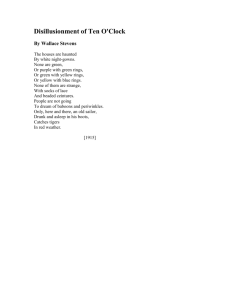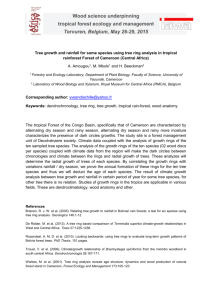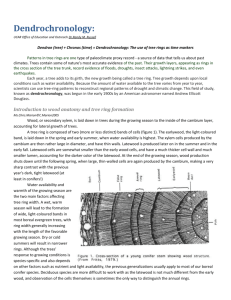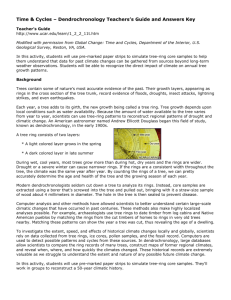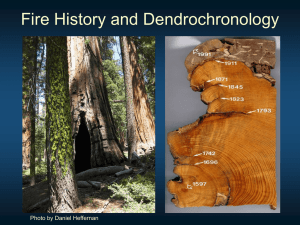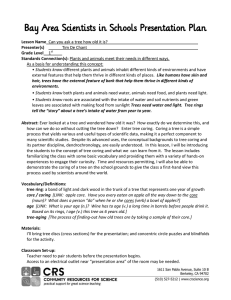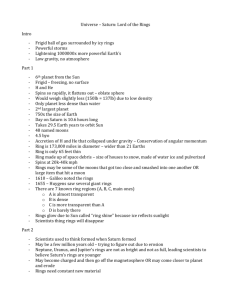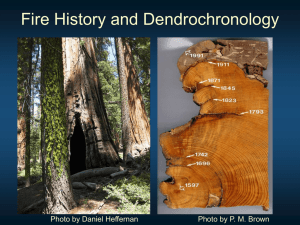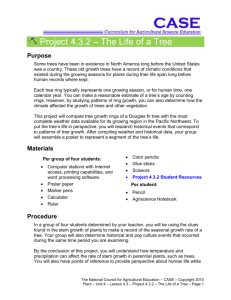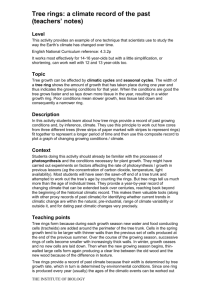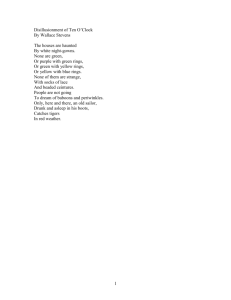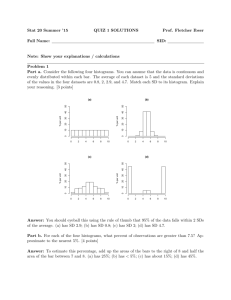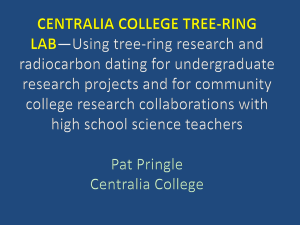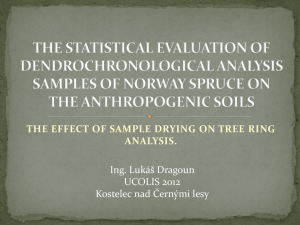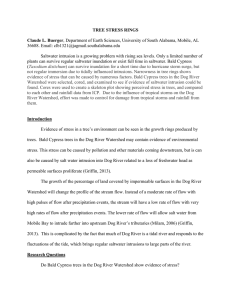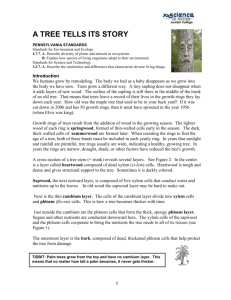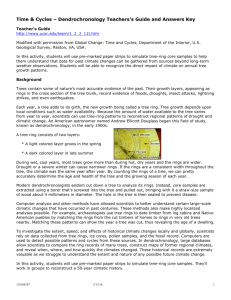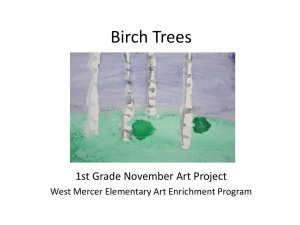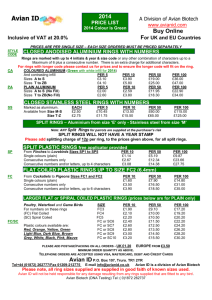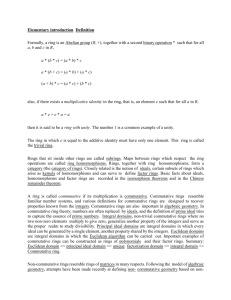Dendrochronology
advertisement
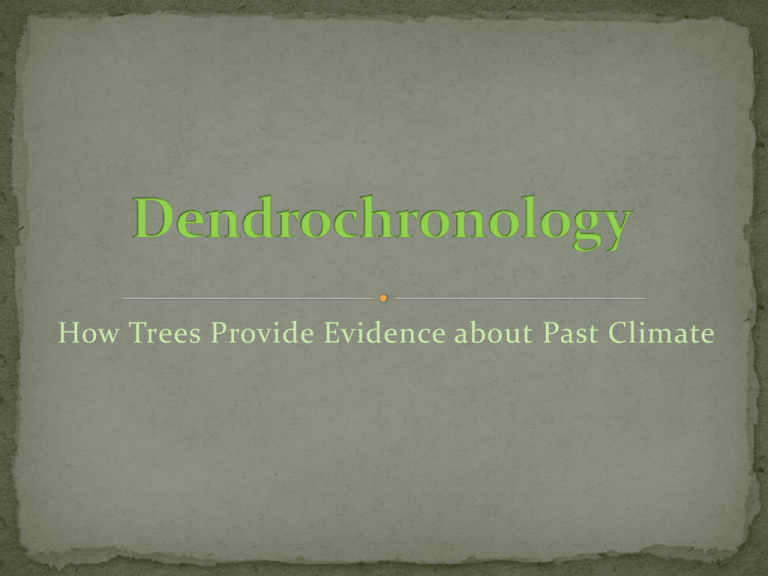
How Trees Provide Evidence about Past Climate Short explanation of Dendrochronology Trees grow in both height and width. Trees growing in environments with distinct growing seasons produce annual growth rings. Trees growing in environments with little seasonal variation – (such as tropical rainforests) often do not have visibly distinct growth rings. Annual Growth Rings are formed in the Xylem layer The xylem tissue in trees conducts water and dissolved nutrients from the soil throughout the entire tree New xylem tissue is produced during periods of active growth In general cells are larger and more numerous during periods with abundant moisture In northern environments each Annual Growth Ring is composed of two rings a Spring Ring Thicker because there is more water present and growing conditions are ideal Summer Ring Thinner and darker in colour because there is less water and the growing xylem cells are smaller There are no fall or winter rings because trees in northern environments are not actively growing during those seasons The thickness of the rings is affected by weather conditions during that growing year. Rings are thicker when growing conditions are ideal – warm and wet. Rings are thicker when growing conditions are poor typically hot and dry. Note: unusual weather conditions can occasionally result in the production of additional growth rings in a single year these are called “false growth rings” Build your own Climate Tree Discovered in Norway in 1906, the Oseberg ship, the best preserved Viking ship ever found, reveals its Norse shipbuilders' graceful construction style. Photo credit: © Svergies TV The analysis of the oak planks making up one Viking Longship (found in Norway) showed that the wood was from trees cut down near Dublin, Ireland some time between AD 10601070. 1. Tree Ring Detective 2. Dendrochronology and Climate Change Lab 3. Trees: Recorders of Climate Change
